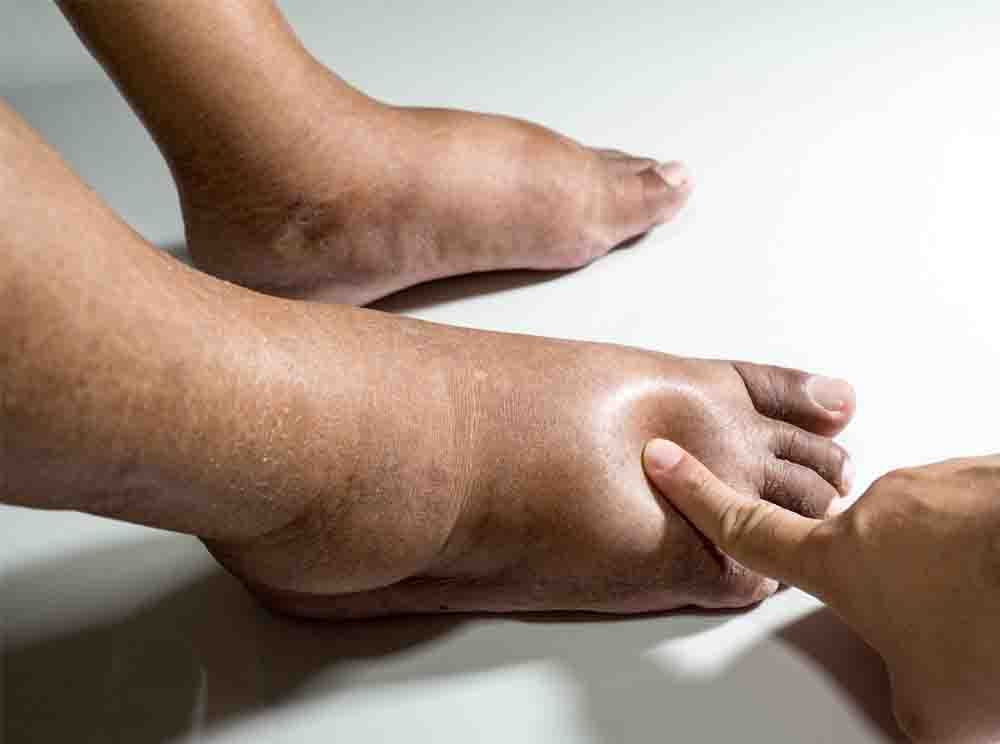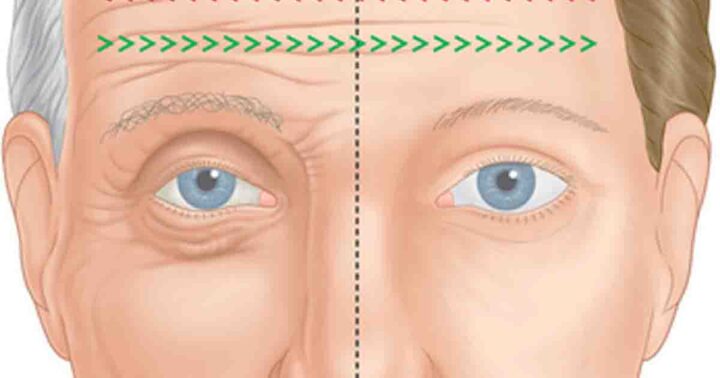In this article, we will explore how the condition of your feet can offer insights into your liver’s health.
However, it’s important to remember that this is not a definitive method for diagnosing liver disease. For an accurate diagnosis, one must consult a doctor and undergo appropriate tests. Nevertheless, certain signs observed in the feet can provide valuable clues about potential liver issues.

Red and Brown Dots on Lower Legs
These signify poor circulation, often linked to liver issues but also seen in diabetes. The appearance of the lower leg and foot reflects overall health since the heart pumps blood to these extremities. Circulation issues here often indicate liver or heart problems.
Spider Veins (Spider Nevus)
Common in cirrhosis, where the liver accumulates excess estrogen affecting the vascular system. This can lead to varicose and spider veins, particularly in the lower legs.
Cracked Heels
These suggest a deficiency in vitamin B3 or omega-3 fatty acids. The liver’s role in bile production is crucial for absorbing these nutrients, including fat-soluble vitamins like A and E, essential for skin health.
Itchy Feet
This can indicate a congested liver, with a buildup of fluids and histamines. It’s often confused with plantar fasciitis but might be a liver issue.
Hot Feet and Bad Odor
Symptoms like these suggest an overburdened liver unable to detoxify effectively, leading to waste accumulation in the body.
Pitting Edema
Pressing a finger into the lower leg leaves a persistent dent, indicative of fluid backup, a common liver symptom.
Fungus and Nail Changes
Liver problems can lead to an imbalance in gut microflora, promoting fungal growth like toenail fungus, dandruff, or psoriasis. Poor circulation can also cause the nail bed to turn white and lose its moon-shaped lunula.
So, what causes liver problems? A range of factors can contribute, including side effects from medications, high sugar diets (particularly high fructose corn syrup), consumption of predominantly cooked or canned foods, a lack of fresh vegetables, excessive alcohol intake, and high protein diets, which can burden the liver with nitrogen waste.
For liver health, a combination of a healthy ketogenic diet and intermittent fasting is often recommended. Let us know your thoughts about this article in the comment section below.











